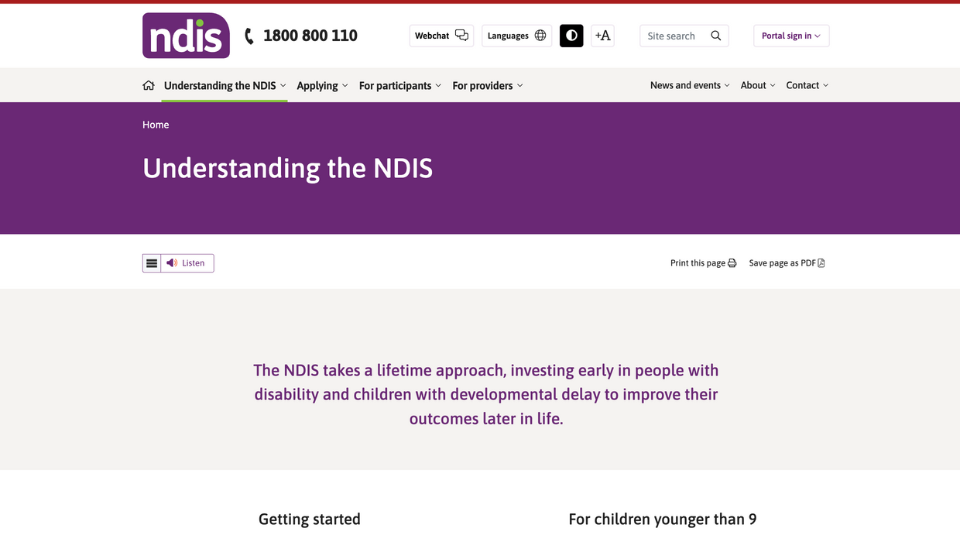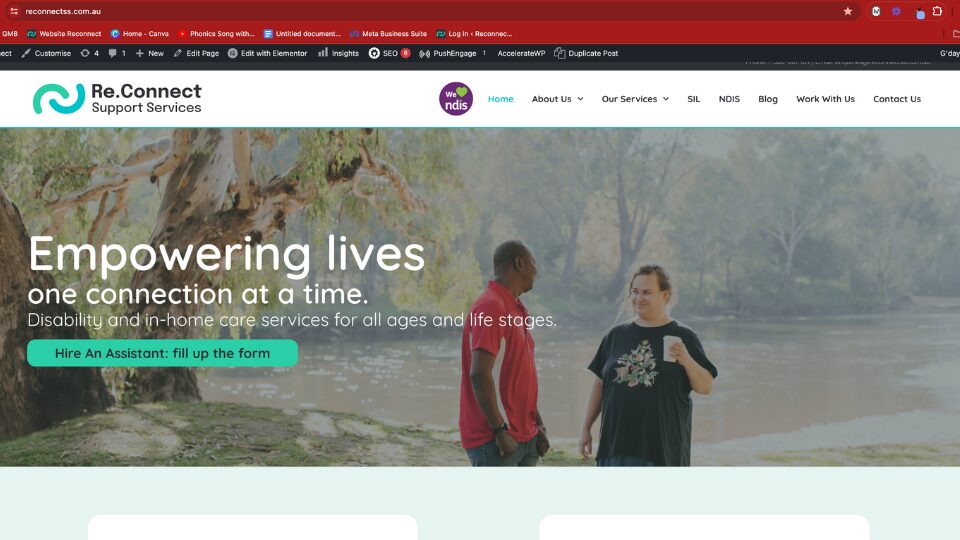Quick Answer: What is NDIS Support for Beginners?
If you are new to the National Disability Insurance Scheme (NDIS), this guide provides a clear, practical overview. NDIS support for beginners includes understanding your eligibility—specifically, that you must be an Australian citizen, permanent resident, or hold a relevant visa—funding categories, and the types of supports and services available. It shows you how to develop an NDIS plan, work with NDIS registered providers, and access reasonable and necessary supports to improve independence and quality of life.
Understanding the NDIS and Its Purpose

The National Disability Insurance Scheme is a key part of Australia’s disability support system, helping people with a permanent and significant disability live independently and participate fully in their communities.
The NDIS operates on a person-centered approach, administered by the NDIA, ensuring that each participant receives tailored support and funding to meet their individual needs and goals.
The scheme is administered by the National Disability Insurance Agency (NDIA) and provides funding for a wide range of disability services, including services that can be delivered in various settings such as home, clinics, or community locations:
Core Supports
Core supports include assistance with everyday activities, daily living, personal care, and community participation.
Capacity Building
Supports to build skills, independence, and confidence.
Capital Supports
Funding for assistive technology, equipment, home modifications, and vehicle modifications.
For detailed guidance, visit the NDIS website.
NDIS Supports and Funding Explained

NDIS supports are divided into three key categories:
- Core Supports
- Capital Supports
- Capacity Building Supports
The NDIS funds a wide range of supports and services, and funds are allocated based on each participant’s individual needs and goals.
NDIS funds are managed according to the participant’s plan and can be used for approved supports.
Core Supports
Assistance with everyday tasks, personal care, and community participation.
Capacity Building
Supports to build skills, independence, and confidence.
Capital Supports
Funding for assistive technology, equipment, home modifications, and vehicle modifications.
Funding is flexible and based on reasonable and necessary supports, tailored to a participant’s specific circumstances.
Creating Your NDIS Plan

An NDIS plan outlines your goals, allocated funding, and supports funded for a year.
- Plans are divided into Core, Capacity Building, and Capital Supports
- Reasonable and necessary supports must relate to your disability and help you achieve meaningful outcomes
- Changes to plans require a plan review or access request
- Providing evidence from health professionals, such as detailed reports and assessments, is essential for access requests and plan reviews to justify funding for supports and therapies.
Family members play a vital role in supporting the participant during planning and reviews, advocating for their needs and helping with decision-making.
Working with NDIS planners or a local area coordinator ensures your plan aligns with your goals.
Choosing NDIS Providers
NDIS participants can choose any qualified service provider, whether registered or non-registered, to deliver their funded supports or manage their plan independently.
Registered Providers
Providers include support workers, allied health professionals, and community organisations.
Building Partnerships
Providers must meet NDIA standards, and building a strong partnership is crucial for achieving greater independence.
You can find NDIS registered providers through the NDIS provider directory.
Reasonable and Necessary Supports
Supports must be reasonable and necessary, meaning they:
- Are directly related to the participant’s disability
- Provide value and improve quality of life
- Are tailored to specific circumstances
Your NDIS planner will help identify these supports.
The types and amount of supports can vary based on each participant’s unique needs and situation.
Early Intervention for Children
The NDIS addresses developmental delay through early intervention requirements, even if the disability is not permanent.
Supports can include:
- Therapies to build skills and independence
- Funding for equipment and home modifications
- Collaboration with health professionals and support workers
Common Misconceptions About the NDIS

Many beginners assume:
- NDIS is only for severe disabilities – it supports anyone with a permanent and significant disability
- NDIS plans are fixed – plans can adapt as circumstances change
- Only one type of provider is allowed – participants have choice and control
- In fact, many participants across Australia benefit from the NDIS, demonstrating its wide reach and strong community support.
Maximizing Your NDIS Benefits
To make the most of NDIS funding, participants should:
- Understand the different funding categories
- Collaborate with support coordinators, support workers, NDIS planners, and providers
- Conduct regular plan reviews
- Track funded services and assistive technology
- Prioritise education about the NDIS to make informed decisions and maximise plan outcomes
Working With NDIS Support Services
NDIS support services include:
- Daily living support and personal care
- Therapies such as occupational therapy
- Assistive technology, equipment, home modifications
- Support for community participation and social inclusion
Practical Tips for Beginners
- Keep detailed records of your NDIS plan and funded supports
- Schedule regular plan reviews
- Collaborate with support workers, health professionals, and NDIS registered providers
- Learn from resources on the NDIS website. There are also developed resources and training modules available to help beginners understand the NDIS.
- Attend workshops or information sessions for beginners
- Remember, families play a crucial role in supporting participants throughout their NDIS journey.
Conclusion

For anyone starting out, NDIS support for beginners is accessible with the right guidance. Understanding NDIS funding, support categories, and your NDIS plan ensures you access reasonable and necessary supports.
Re.Connect Support Services helps participants understand the scheme, work with providers, and access tailored disability services, empowering participants to live independently, develop skills, and participate fully in their communities.


